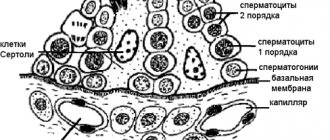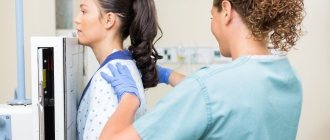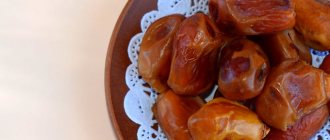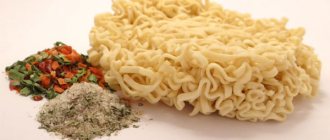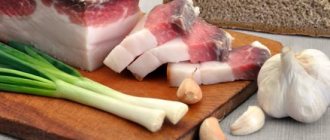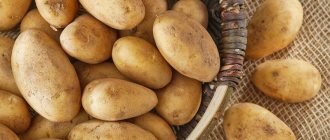A complete blood count (CBC), or clinical as it is also called, is one of the most common studies. It is prescribed both as a screening and to search for pathology accompanied by various types of symptoms.
The first type of diagnosis that the doctor will recommend for the patient to undergo will be this particular analysis, since it is the most informative and inexpensive. Thanks to this technique, a specialist will be able to assess the general condition of the body and identify existing problems of various functional systems and individual organs.
Of course, modern reagents and equipment can ensure maximum reliability of research results. But the patient must also follow certain rules, one of which is limiting food intake, that is, take the test on an empty stomach.
What does a general blood test determine?
Before delving into the essence of the concept of “fasting” and finding out whether this rule should be followed, you need to know what is assessed during a general blood test. Using this diagnosis, the quantitative and qualitative indicators of blood cells, their absolute and relative content, hemoglobin, as well as nonspecific characteristics, for example, ESR - erythrocyte sedimentation rate, are determined.
Therefore, food intake or any drinks should not have a significant impact on the results of the study. But this is not entirely true, given the calorie content of foods, it is necessary to remember that their consumption causes a number of complex biochemical reactions that necessarily affect the composition of the blood. Of course, they are not able to influence the above indicators, but they can completely influence the quality of the sample.
Why is blood donated on an empty stomach?
Whatever blood or urine tests you decide to take, most often a prerequisite for such procedures is a fasting test. It may seem counterintuitive to some that stomach fullness is so important when taking samples for HIV, syphilis or hepatitis. But this makes sense. If you eat meat, sweets or other foods before taking blood, the nutrients will begin to be absorbed and dissolved in the blood, affecting the volume of protein, fatty and other substances in the blood. Next, enzymes are activated, blood viscosity changes and the concentration of hormonal molecules increases. And this involuntarily affects the condition of the blood and the result of the analysis.
What does "on an empty stomach" mean?
Despite the fact that most people by the concept of “fasting” mean refusing food, in practice this is not the case.
Reference! Not only food can cause changes in metabolic processes in the body, but also various drinks, even those that are not high-calorie.
Some liquids contain various chemicals that provoke the production of hormones and enzymes, thereby triggering various metabolic processes, followed by the release of products of their synthesis and breakdown into the blood. For example, the liquids listed below can act as follows.
Sparkling water. The bubbles we are familiar with are formed by CO2 - carbon dioxide. There is a special enzyme in human blood - carbonic anhydrase. The task of this substance is to ensure the conversion of excess carbon dioxide released due to respiration. Changes in the content of respiratory enzymes and their activity clearly affect the biochemistry of the blood, but this will not interfere with the general analysis.
Mineral water. Mineral table water, in addition to carbon dioxide, contains an almost complete list of chemical elements present in the periodic table: iron, sodium, magnesium, chlorine, calcium, sulfates, bicarbonates. All of them affect biochemical processes, as a result of which mineral water, unless it is a clinical blood test, should be abandoned.
Tea and coffee. Tea is known to contain a substance called tannin, which can lead to an increase in blood viscosity, so drinking a large amount of this drink can interfere with the blood collection procedure itself.
Caffeine triggers many chemical reactions in the body, the main ones of which are aimed at activating brain activity, increasing performance and improving overall tone. That is, large-scale changes are occurring, so even before a general blood test you should not drink the so-called “traditional morning cup of coffee.”
Drinking coffee before donating blood is not recommended
Alcohol. The effect of ethyl alcohol on metabolic processes is even stronger than that of tannin or caffeine. For example, alcohol-containing drinks reduce the quality of blood clotting, and if you need to go to the laboratory in the morning to donate blood, drinking alcohol the evening before the test is strictly prohibited.
Juices and fresh juices. Fruit and vegetable juices and fresh juices contain a lot of carbohydrates, presented in the form of glucose and fructose. They are absorbed very quickly and affect not only sugar levels - they can also cause a decrease in the quality of the biomaterial sample.
Regular clean water. This is the only substance that is not able to affect the indicators during most studies, and before a general blood test you are allowed to drink it, but not in too large quantities. Excessive water consumption will reduce the concentration of formed elements and distort diagnostic results.
Reference! Before visiting the laboratory, for all tests except biochemical tests, it is recommended to drink 1 glass of still water - this will slightly thin the blood and eliminate possible problems with collecting biomaterial.
Process of collecting biomaterial
Many mothers and fathers do not know where they get a general blood test from children. Both capillary and venous blood are suitable for the study. These species have different normal values, which must be taken into account when interpreting the results.
Where do they get a general blood test for children? Most often, by default, biomaterial is collected from a finger. But, according to clinical recommendations, if it is impossible to perform this action, the nurse has the right to make a puncture in the vein. It is worth noting that this happens extremely rarely.
Blood sampling for clinical research occurs as follows:
- The nurse wipes the pad of the finger of the non-working hand with cotton wool, generously moistened with an antiseptic. The latter most often is medical alcohol.
- The nurse then very quickly pierces the skin with a lancet or scarifier. Then she puts a little pressure on the pad of her finger so that a few drops of blood come out. This liquid connective tissue is removed with cotton wool soaked in an antiseptic.
- The nurse then collects the escaping blood and transfers it to a tube. Then cotton wool moistened with an antiseptic is applied to the puncture site. It needs to be held on the pad for several minutes. This is necessary in order to stop the bleeding.
The process of collecting biomaterial lasts on average 1 minute. It is necessary to explain to the child that it is not associated with the occurrence of severe painful sensations, but some discomfort may still occur.
Information on how to take a general blood test for a child can be provided by the doctor who ordered the test. He will subsequently be involved in the interpretation of the results.
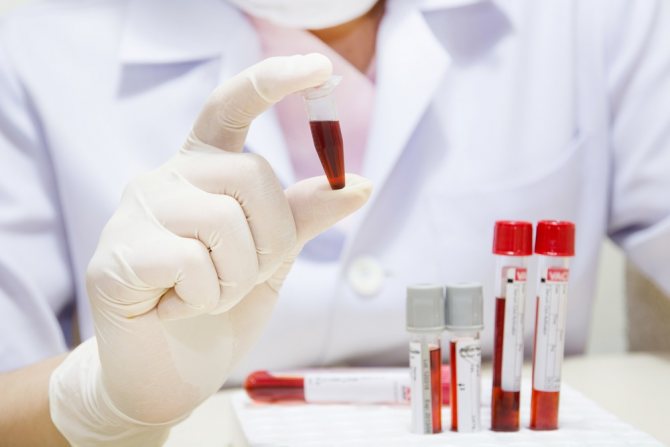
What tests are taken on an empty stomach?
As a rule, when a doctor prescribes a certain test for a patient, he explains how he needs to prepare, or a nurse does this. Most blood tests are taken on an empty stomach, which is one of the main conditions. Therefore, the task of doctors is to tell whether it is possible to eat and drink before the study, and how many hours later the biomaterial can be donated after the last meal or liquid.
You can also read the recommendations yourself in order to be prepared in advance for various requirements. What blood tests are taken on an empty stomach, and how strict are these rules for a specific type of research?
The most common and predominantly prescribed include general, biochemical, serological, immunological tests, as well as blood sugar diagnostics. Therefore, it is advisable to consider these studies in detail, to find out whether to take them on an empty stomach or not?
General analysis
Clinical blood testing is rightfully considered the simplest and most informative technique. Its diagnostic capabilities have already been described above. It follows from this that food intake will not have a significant impact on the results of the analysis, however, despite everything, it gives up after a long fast - 8-12 hours. What is this connected with?
The fact is that after nutrients or chemical compounds that can cause a reaction enter the body with food or drinks (everything except pure water), various metabolic processes are activated. Almost everything, not just digestive reactions, is reflected in the composition of the blood.
Of course, they will not violate its formula, but they can lead to a deterioration in the quality of the sample itself, making it less suitable for study. For example, fatty foods will cause lipemia - the appearance of lipids (fats) and their acidic compounds in the blood, which will cause turbidity in the donated biomaterial.
Such changes occur approximately 1-2 hours after eating and last for quite a long time. In this regard, it is recommended to refrain from a large dinner the day before the examination and try not to eat fatty foods during the day.
Reading such very serious restrictions, the question involuntarily arises: how do they take blood from children, especially small ones, to whom it is difficult to explain why they need to be patient and go hungry for several hours?
Here is a slightly different approach - just feed the baby and wait 3-4 hours, and then get tested. Considering that a child of this age is not fed complex and long-digesting food, the consequences of its consumption will not affect the results of the study.
A similar method is suitable for older children. In the morning, a light early breakfast consisting of porridge without butter and sugar, eggs and rye bread. You can also eat chicken breast. You cannot eat cheese, butter, pastries, sweets, beef, pork, or lamb. At the same time, children can drink water, which will suppress their appetite for a while and allow them to undergo the examination with the least discomfort.
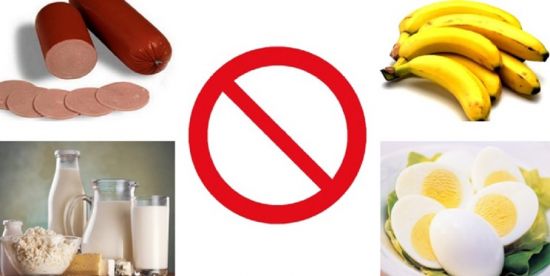
Fatty foods cause blood lipids and cloudiness of the sample taken
In some situations, for example, if the patient has a history of diseases of the digestive system (peptic ulcer, etc.), prolonged hunger will cause pain. Naturally, there is no point in causing inconvenience to a person, and in such situations it is allowed to have breakfast before the procedure.
The recommended products are the same as for children, but it is advisable to wait at least 4-6 hours before taking blood. Adults are also allowed to drink water, but only clean, non-carbonated, non-mineral water, without dyes or various additives.
Some doctors even recommend drinking a glass of water about an hour before the test, which will slightly thin the blood, making the collection procedure more comfortable for the patient and the laboratory specialist. However, this does not mean that it should be consumed in any quantity - a significant amount of liquid drunk will lead to a decrease in the concentration of blood cells and distort the data obtained.
Blood biochemistry
To undergo this diagnosis, the patient will need to face serious limitations in terms of preparation. A biochemical blood test is done exclusively on an empty stomach; you will even have to refrain from drinking water - you are allowed to take only a few sips if you are very thirsty.
The essence of the study is to study biochemical components, the concentration of which varies depending on the ingestion of nutrients into the body and the characteristics of their composition. No exceptions are made here; even small children are tried to be examined after a long period of abstinence from feeding.
Otherwise, there is a high probability that, due to artificially created changes (food intake), problems in the body will not be detected, and the diagnosis will remain unknown. Patients who are being examined for pathologies of the urinary tract must adhere to these prohibitions.
Blood for sugar
A similar strict principle underlies the preparatory process for testing blood glucose levels. It must be taken not only on an empty stomach, but also with minimal water intake, since even a couple of glasses drunk several hours before the procedure can lead to distorted results.
In addition, the person being examined should not drink too much liquid on the eve of the day of diagnosis, as this will lead to a similar problem. It is allowed, by analogy with blood biochemistry, to moisten the throat with two or three sips of plain water to reduce thirst.
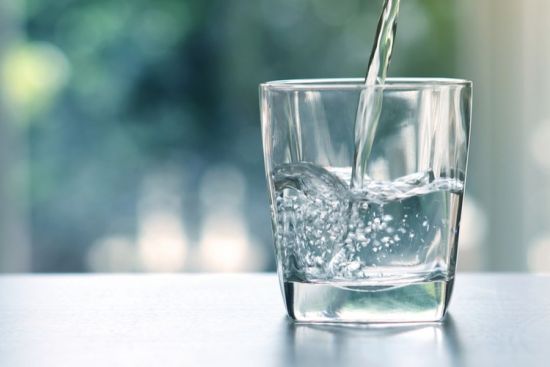
To facilitate the process of taking blood for most tests, doctors recommend drinking one glass of clean water 1-2 hours before.
Immunological, serological and hormone analysis
Serious restrictions apply to the consumption of food and water and in preparation for tests for hormones and HIV. Serological and immunological blood tests do not require such strict abstinence, but this does not mean that you can drink liters of water both on the day of the procedure and on the eve of the diagnosis.
Blood tests for tumor markers also do not require significant dietary and drinking restrictions. If for some reason a person has already had breakfast and needs to take a general, serological or immunological test, it is enough to wait a few hours before taking blood. The sample taken will be completely suitable for study.
When is analysis indicated?
- in preparation for surgery and admission to the hospital;
- when undergoing donor examination;
- during pregnancy;
- during employment;
- with primary signs of syphilis (enlarged lymph nodes, rash, chancre);
- after treatment of syphilis;
- if the child was born to a woman with syphilis.
The analysis allows you to identify the disease at the earliest stages.
When left untreated, sexually transmitted diseases can lead to serious complications, and syphilis is the most insidious of them.
If previously it was believed that syphilis was a disease that affects people who are promiscuous, today it has been proven that it can also be contracted through everyday life. In addition, by contact with the blood of a patient, you can also “get” this disease.
Memo to patients
It should be remembered that one of the important components of the recovery process is a correctly established diagnosis. But it cannot always be determined if the preparation for the prescribed tests was done incorrectly or was not of sufficient quality. Therefore, you should not neglect the recommendations given by your doctor or nurse so that you do not have to undergo the test again.
If something is unclear, it is better to ask again - now there are many clinics not only in Moscow, but also in other cities of the Russian Federation, where specialists will tell you the answer to any question regarding all types of laboratory tests. The main thing is not to forget that taking care of your health is a personal matter; entrusting it to someone else is not always advisable.
Do's and don'ts before hormone tests: TSH, testosterone, hCG
Drink: There are no restrictions on water.
Yes: like all other tests, it is advisable to take hormones in the morning on an empty stomach. Eating a large breakfast may affect your thyroid hormone levels or make your sample unusable for testing.
Exercise: Human hormones react to physical activity and stress very noticeably. Your testosterone production may change from training the day before; stress affects cortisol and TSH levels. Therefore, if you are donating blood for thyroid hormone tests, we advise you to avoid nerves and fuss as much as possible on the morning of the test and the day before. In the case of tests for sex hormones, exclude training, baths, and try to sleep for a sufficient amount of time.
Medicines: for analysis of TSH, T3, T4, it is better to exclude iodine preparations 2-3 days before donating blood; we recommend checking your multivitamins, they may contain iodine.
Other: do not forget that women need to take tests for sex hormones on certain days of the cycle; it is usually recommended to take tests on days 3-5 or 19-21 of the menstrual cycle, depending on the purpose of the study, unless the treating doctor has prescribed other dates.
